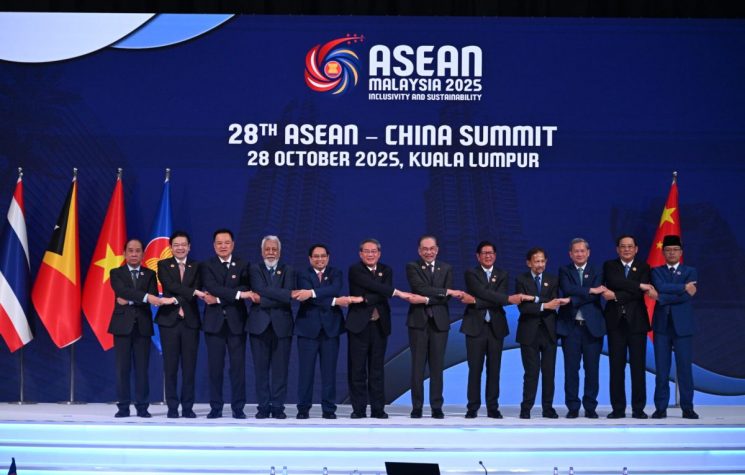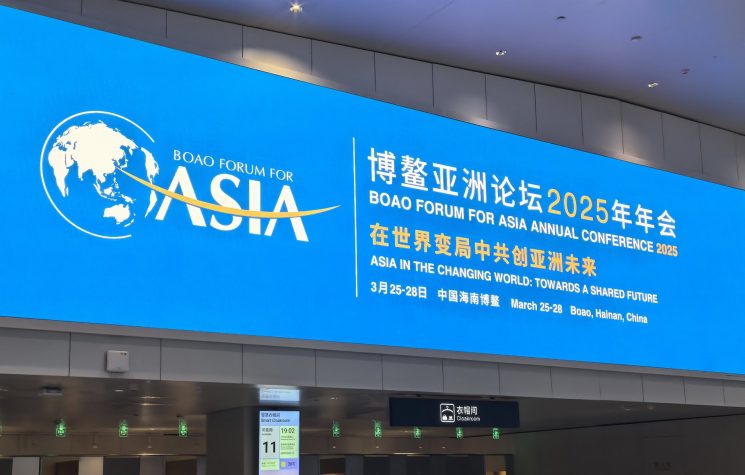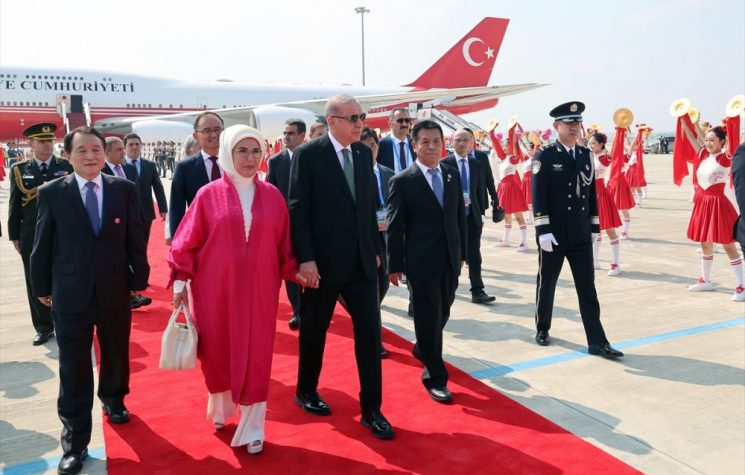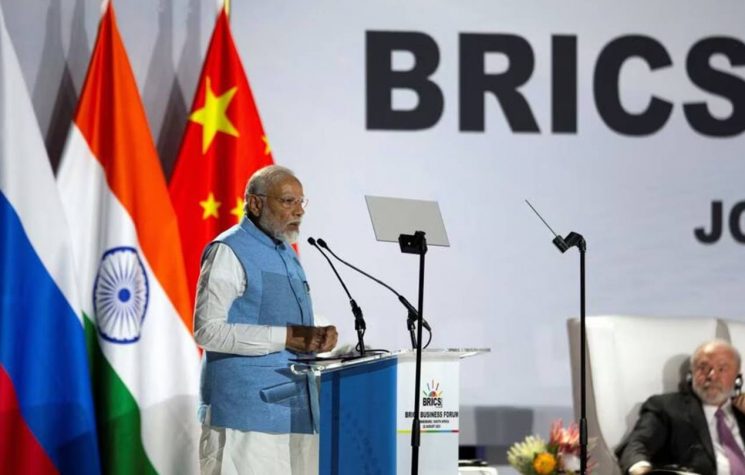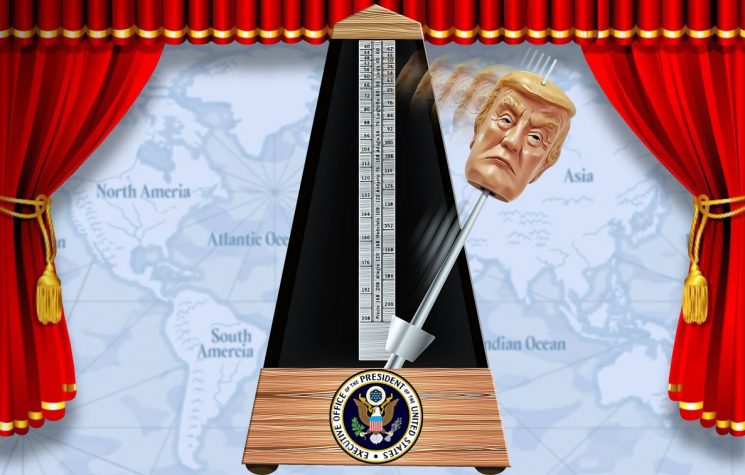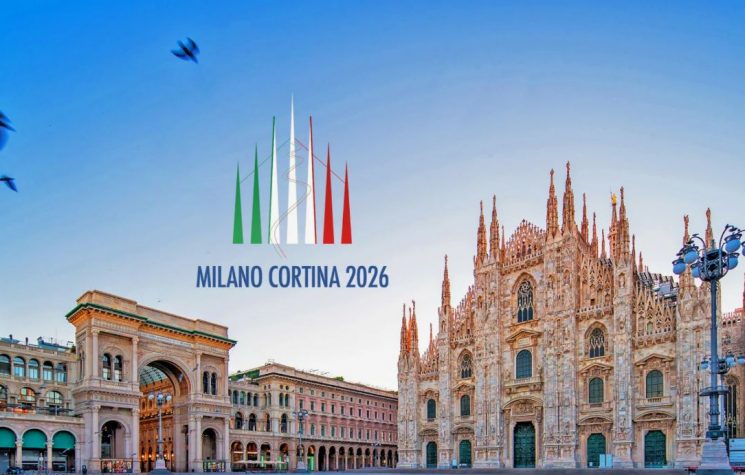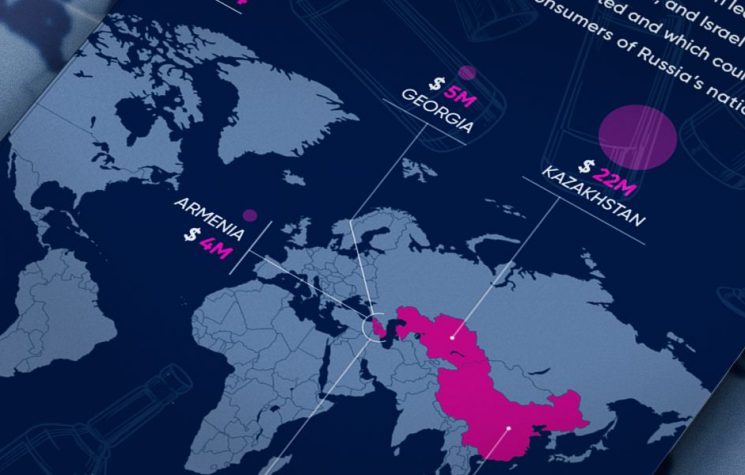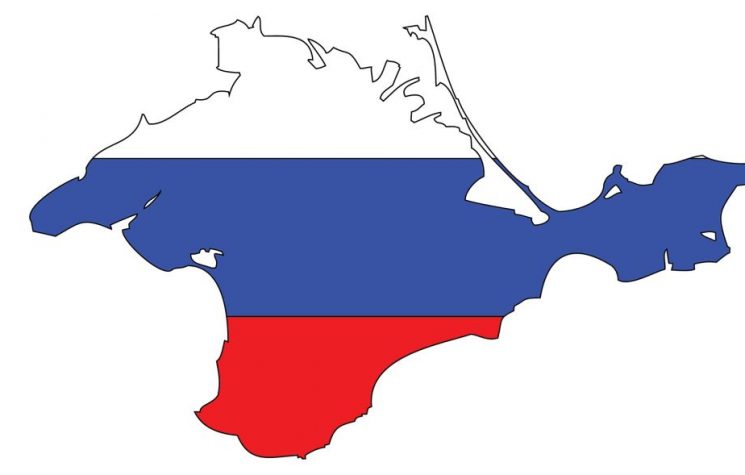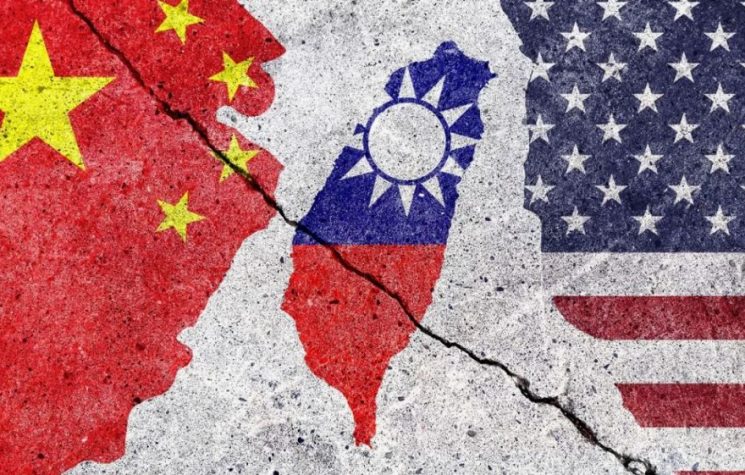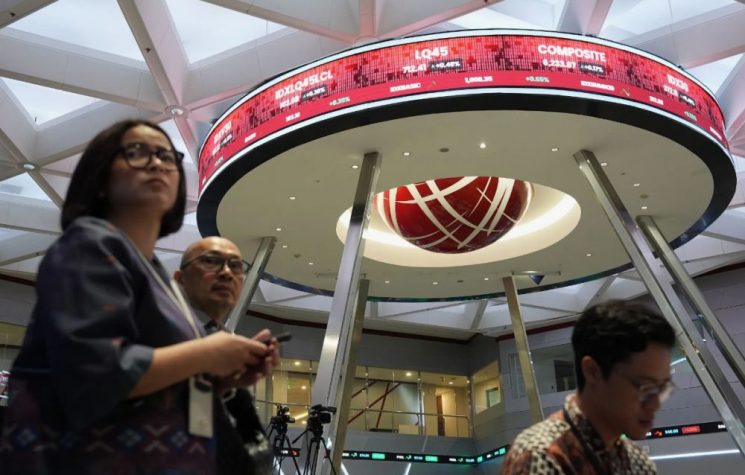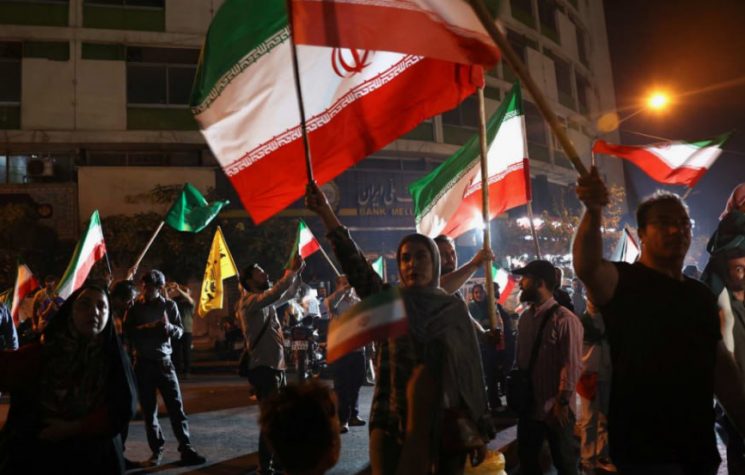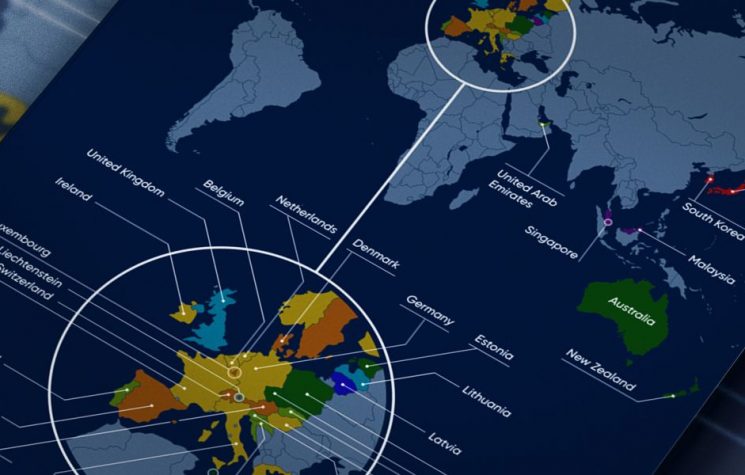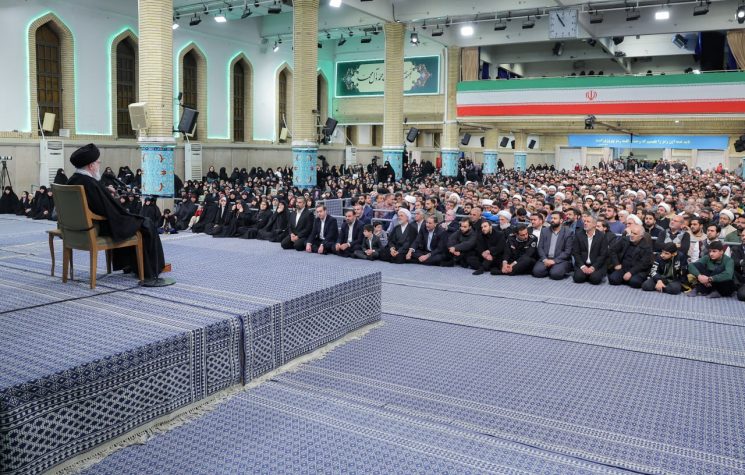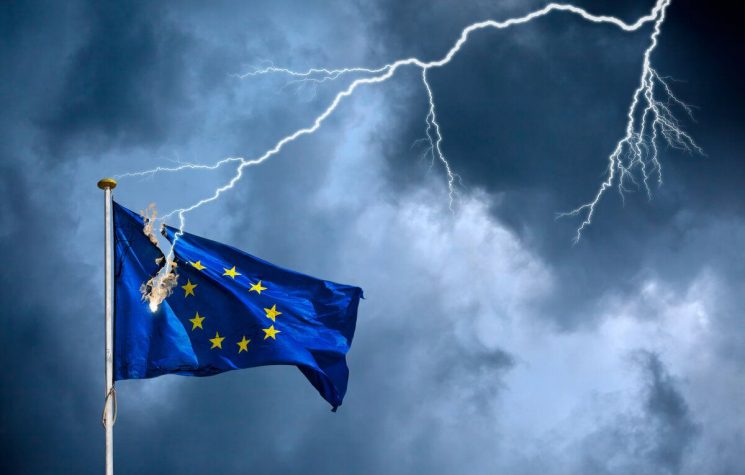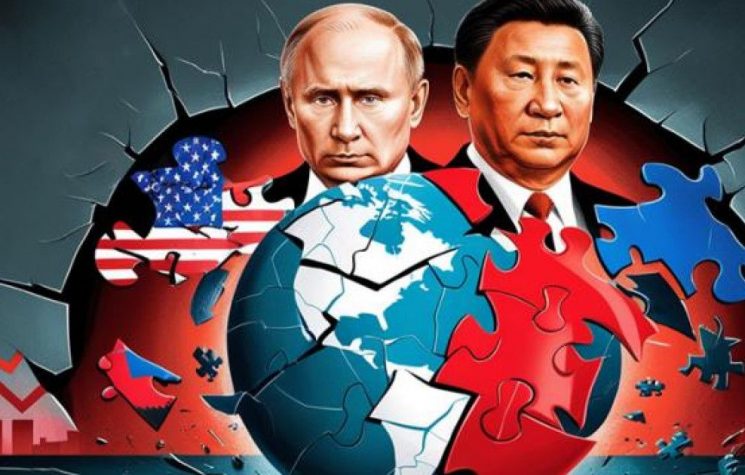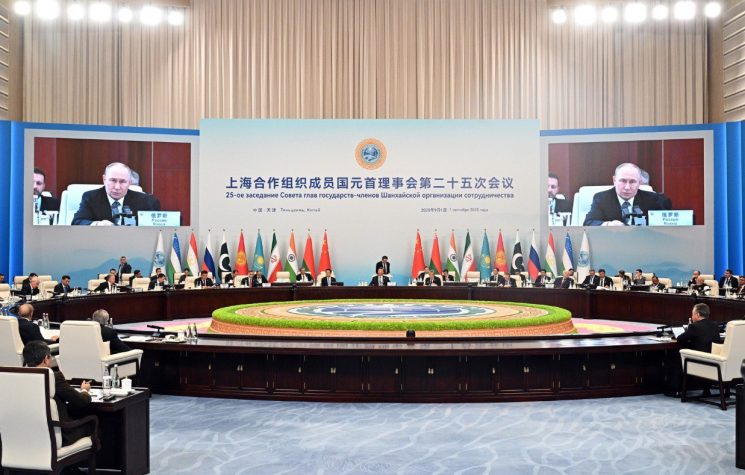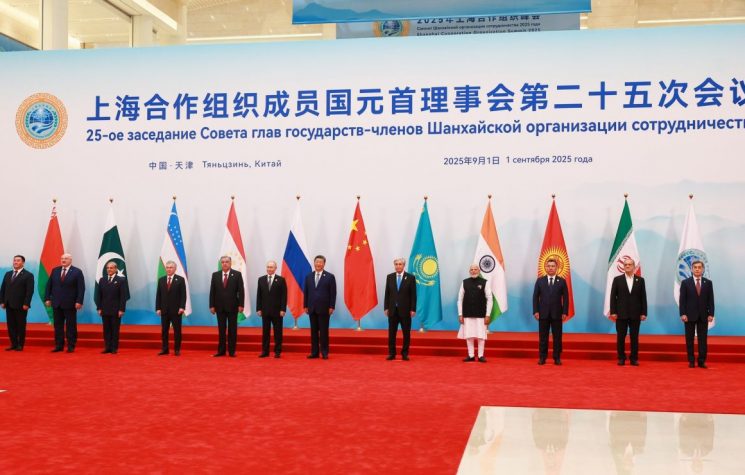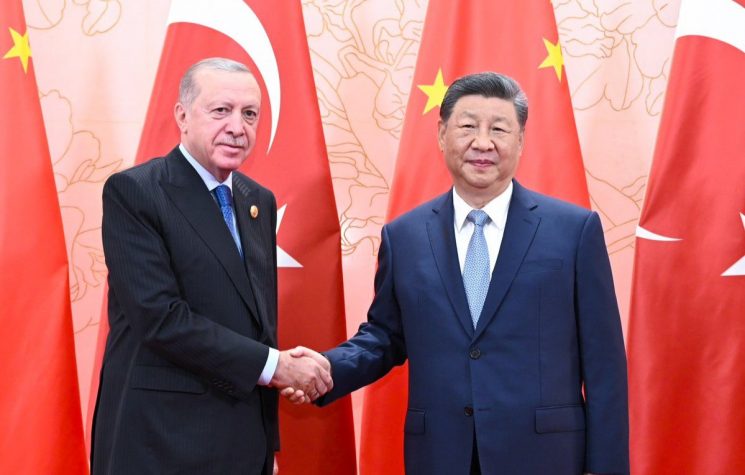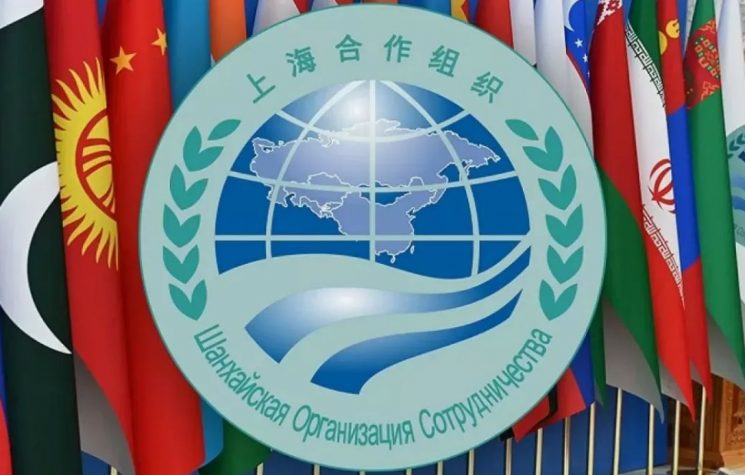Geographically and geopolitically speaking, the SCO is gradually creating a protective cordon around the Rimland vis-à-vis the Heartland.
Join us on Telegram![]() , Twitter
, Twitter![]() , and VK
, and VK![]() .
.
Contact us: info@strategic-culture.su
Shaping the world anew
From its origins as a key port on the Grand Canal to its present-day status as a cosmopolitan metropolis—where colonial buildings coexist with modern skyscrapers and cutting-edge technology districts—Tianjin is a city in constant transformation. A pillar of the Beijing-Tianjin-Hebei integration strategy, today it is a global hub for innovation, trade, and the concrete implementation of the “Spirit of Shanghai.”
The 2025 SCO summit will be crucial in shaping the world in the coming years.
The SCO is a regional intergovernmental organization founded in 2001 in Shanghai by China, Russia, Kazakhstan, Kyrgyzstan, Tajikistan, and Uzbekistan. However, its roots date back to the “Shanghai Group” created in 1996, with the initial aim of resolving security and border issues between China and the post-Soviet Central Asian states. Over the years, the SCO has gradually transformed itself from a regional cooperation forum into a broad-based multilateral platform, active not only in the field of security, but also in the economic, cultural, and energy fields.
The Shanghai Spirit is based on mutual trust, mutual benefit, equality, respect for cultural diversity, and the pursuit of shared development. This approach has made it a unique entity on the international scene, an alternative to the dominant models of traditional military alliances or Western-led economic institutions.
This balance between tradition and innovation surprises every visitor, as Tianjin’s history reflects China’s development on a small scale: rooted in the past but projected towards the future.
In recent years, the organization has undergone significant expansion: in 2017, India and Pakistan became full members, in 2023 Iran joined, and Turkey, Saudi Arabia, and Egypt became dialogue partners, geographically expanding the Alliance and strengthening its political weight. In fact, the SCO represents 40% of the world’s population and more than 20% of global GDP.
At the same time, the SCO has expanded its areas of action. In addition to security cooperation, economic, infrastructure, and energy integration initiatives have been implemented, creating areas of trade cooperation for the development of the Belt and Road Initiative, as well as renewable energy projects. Tianjin is actively contributing to this process: the development of solar, wind, and new energies reduces emissions and improves the energy mix. The SCO platform is accelerating this transformation, enabling the sharing of green technologies and project experiences with the entire region.
Hosting the SCO summit is the crowning achievement of this journey. It is an opportunity to showcase Tianjin’s progress and its commitment to the “Spirit of Shanghai” and regional cooperation. By actively promoting SCO initiatives, the city is consolidating its role as a global gateway and engine for a more prosperous, sustainable, and multipolar future.
The SCO works, and it is proving it to the whole world.
Everything under Heaven
The Spirit of Shanghai, this vocation for a prosperous and peaceful common future, has its origins in one of the fundamental concepts of Chinese tradition: Tianxia (天下).
Tianxia literally means ‘everything under Heaven’ and is not merely a geographical notion, but a vision of the world and international relations. In ancient China, Tianxia referred to the known world, but also to a political and moral order based on harmony and hierarchy. The emperor’s kingdom was seen not only as one state among others, but as the civilizing center around which all of humanity was organized. That is why China was the “Middle Kingdom,” between Heaven and Earth.
Tianxia is also a universal moral community. Neighboring peoples could be part of this order by recognizing the ritual and symbolic supremacy of the emperor, without necessarily being ruled directly by him. In practice, the Chinese tributary system—through which neighboring states brought gifts in exchange for recognition and commercial advantages—embodied Tianxia as a form of international relations based on deference and reciprocity. With the Zhou dynasty (11th–3rd century BC), Tianxia became linked to Confucian cosmology and the concept of the moral justice of the sovereign. Throughout imperial history, especially during the Han, Tang, and Ming dynasties, Tianxia became the framework through which China interpreted its relations with other peoples, distinguishing between the “civilized” (those who accepted the Sinocentric order) and the “barbarians” (those who remained outside it).
Tianxia is, to all intents and purposes, an alternative model to the Westphalian model of international relations, based on competing nation states. Tianxia represents Asian wisdom, a brilliant, inclusive system that can be applied on a global scale, in which conflicts are overcome through integration and shared responsibility, not hegemony.
That is why the SCO can do great things.
Multilateralism, baby
The link between Tianjin and the SCO’s mission is profound. China has launched the Luban Workshops—which now have 36 locations in 30 countries—professional training centers abroad that spread skills and train new generations of skilled workers in member countries, promoting local development and embodying the core principle of the Shanghai Spirit: mutual benefit. In 2024, the initiative received the World Vocational Education Award and was described by the international media as ‘the technological hub of the leading global education brand’.
The port of Tianjin, the main port in northern China and a strategic hub of the Belt and Road Initiative, is the beating heart of trade with SCO countries. Its efficient logistics support integrated economic flows. The SCO’s commitment to facilitating trade, upgrading infrastructure (rail, road, energy), and creating investment platforms directly strengthens Tianjin, increasing traffic, attractiveness, and international influence.
The China-SCO Local Economic and Trade Cooperation Demonstration Zone, located in Tianjin, offers unprecedented opportunities. It serves as a springboard for local businesses to enter SCO markets, promoting industrial modernization and economic optimization through concrete collaborations.
In an uncertain global context marked by challenges to multilateralism, the SCO is becoming increasingly important. It offers countries in the global South an alternative model: cooperation based on consultation, common contribution, and shared benefits, opposing unilateralism and protectionism.
The practical vocation of the SCO—from economic integration to security cooperation and cultural exchanges—also provides valuable insights for global governance. The “Spirit of Shanghai” brings new and constructive principles to international dialogue that will not be ignored, not least because China is demonstrating, not just talking, and this is worth more than any doctrine or theory. The recent entry of important Middle Eastern countries confirms the organization’s expansion and its unique ability to connect different interests, offering extensive markets, unparalleled prospects for cooperation, and security mechanisms crucial to regional stability.
Geographically and geopolitically speaking, the SCO is gradually creating a protective cordon around the Rimland vis-à-vis the Heartland, and even more than that, because they are protecting all possible Heartlands in the multipolar context. This is the case, whether we like it or not. And the collective West will have to take this into account.
















